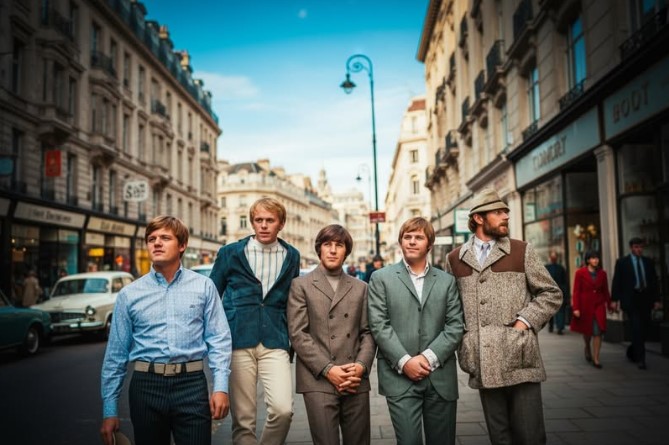
When The Beach Boys released “Long Promised Road” in 1971, few could have predicted that this understated single would come to symbolize a turning point in their storied career. Hidden within the shimmering harmonies and heartfelt lyrics lies a story of rebirth, courage, and personal transformation — one that marked the rise of Carl Wilson as a creative leader and emotional anchor for the band.
A Song Born From Struggle and Hope
Released in May 1971 as a single and later featured on the Surf’s Up album that August, “Long Promised Road” didn’t climb far on the charts — peaking at #89 on the Billboard Hot 100. Yet, what it lacked in commercial glory, it more than made up for in emotional depth.
At this time, the band was emerging from years of uncertainty following Brian Wilson’s withdrawal due to health and personal challenges. The grand ambition of the Smile project had crumbled, leaving the group adrift and searching for purpose. But amid the turmoil, Carl Wilson found his voice — both literally and artistically. “Long Promised Road” became his declaration of resilience.
Carl Wilson’s Defining Moment
Written and sung by Carl himself, the song showcased a newfound creative maturity. Under his quiet leadership, The Beach Boys began evolving from their early surf-rock image into something more introspective and soulful.
With Jack Rieley contributing thoughtful, poetic lyrics, Carl crafted a composition that balanced melancholy with faith — a reminder that the most meaningful journeys are often the hardest ones to take.
Behind the scenes, the band — Brian, Carl, and Dennis Wilson, Mike Love, Al Jardine, and Bruce Johnston — worked with legendary session musicians, including Hal Blaine on drums, to create a sound both timeless and deeply human.
Musical Brilliance Behind the Emotion
“Long Promised Road” unfolds as a mid-tempo reflection, gradually rising into an uplifting spiritual anthem. The production blends piano, bass, electric guitar, and a subtle horn section, all wrapped in the lush harmonies that only The Beach Boys could deliver.
The arrangement moves effortlessly between introspection and triumph — mirroring life’s own unpredictable rhythm. Gospel, rock, and soul influences intertwine, creating a sound that feels both classic and contemporary even decades later.
Themes That Still Resonate Today
At its heart, the song is a journey of perseverance and renewal. The road itself becomes a metaphor — a symbol of faith, endurance, and the will to keep moving forward even when the destination feels far away.
Lyrics like “To climb the hill, you first must climb the pain” capture the bittersweet truth of personal growth: there’s no joy without struggle. Though the song reflects the spiritual sensibilities of the early 1970s, its message remains universal and timeless.
A Quiet Masterpiece on a Powerful Album
The Surf’s Up album — which reached #29 on the Billboard 200 — stands as one of the band’s most acclaimed works. It marked The Beach Boys’ creative resurgence, blending environmental awareness, spirituality, and raw emotion into one cohesive statement.
“Long Promised Road” may not have topped the charts, but it became a fan favorite and critical gem, cherished for its sincerity and artistic honesty. It’s a song that invites listeners not just to hear, but to feel — to look inward and find strength in vulnerability.
Listen and Rediscover The Magic
More than fifty years later, “Long Promised Road” continues to inspire with its hopeful tone and heartfelt delivery. It’s not just another Beach Boys track — it’s a musical confession of the soul, a promise fulfilled through melody and meaning.
🎧 Experience it yourself:
Watch “Long Promised Road (Track & Background Vocal Mix)” on YouTube and take a journey through the sound that redefined The Beach Boys’ legacy.
Final Thoughts
“Long Promised Road” reminds us that great art often rises from struggle. For The Beach Boys — and for Carl Wilson — it was more than a song. It was a statement of faith, a declaration of endurance, and a beacon of light on their long journey back to creative glory.